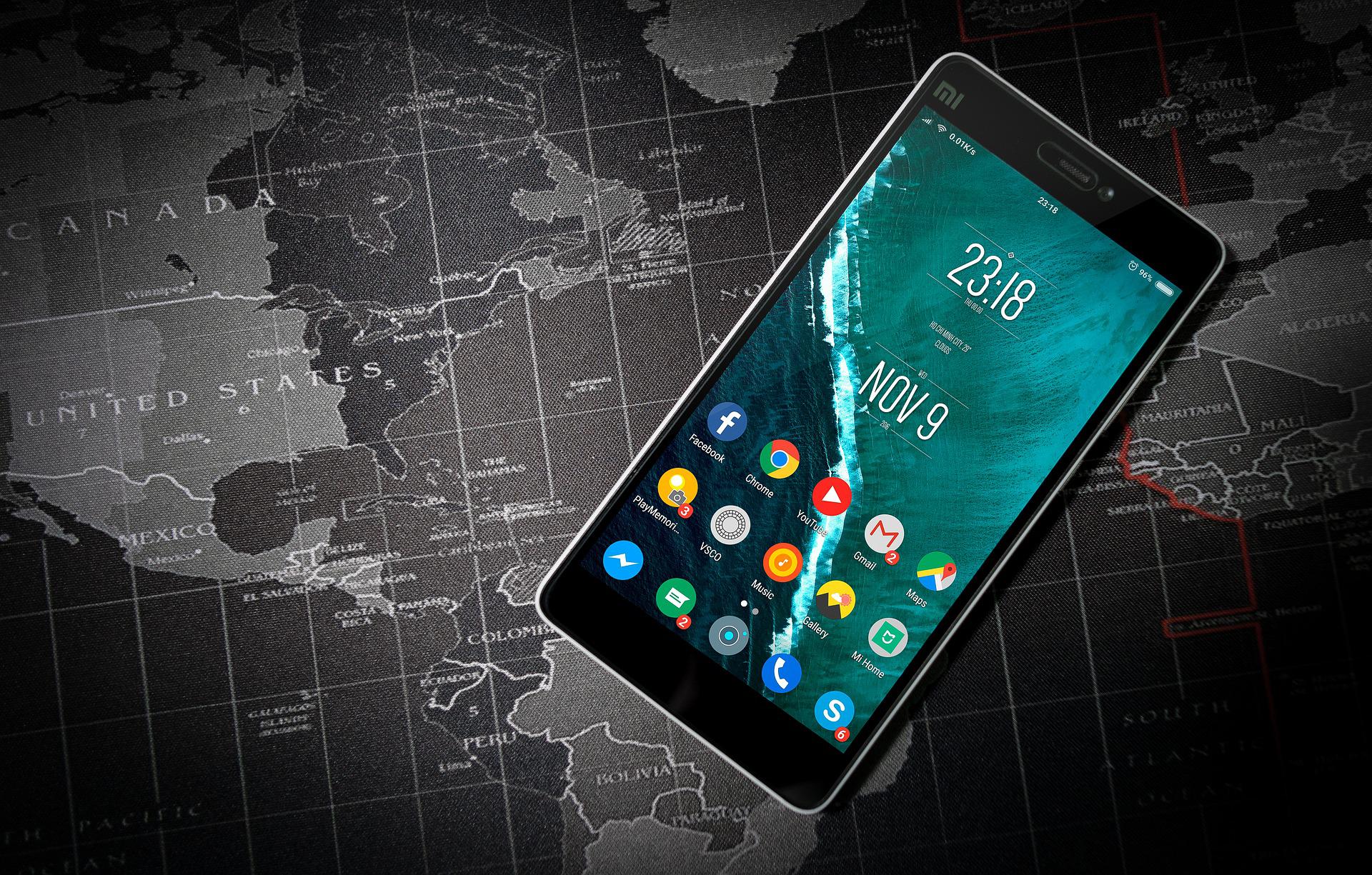Degoogled Android phones come with different operating systems. Let us outline the four most popular degoogled phone operating systems, compare them, and help you to decide which is the best degoogled Android OS for your phone.
For years we have watched as more robust Big Tech and government surveillance systems have taken control of our privacy. From the moment you pick up a mainstream smartphone, you are being tracked. Everything from your purchase habits to the trips you take throughout your day is logged, and collated. This information is used later on to either sell you more products or for integration by companies who want more insight into consumer behaviour.
The problem is that this overreaches into our privacy. Is it such a good thing that our cell phones listen to our conversations about what to feed our babies and then deliver ads for the latest baby food available at a big box store when we browse the web? Should viewing the recent championship photos of a niece’s soccer game send us to ads for a sports drink? If a company can track our voice and our actions, what is to stop them from viewing our banking, messages, emails, and other private data? The answer is simple – nothing.
That is where deGoogled phones can help. These are devices outside the environment of government and Big Tech tracking that still allow you the experience and tools of smartphone technology. Let’s get into the details of the most popular deGoogled phone operating systems available.
What is a deGoogled Phone?
A deGoogled android phone is an Android-based device that has had all of the core software and operating systems from Google, and the Manufacturer removed. The idea is to enable you to have bespoke technology while still protecting your privacy, freedom, and free speech.
You cannot deGoogle an Apple phone.
DeGoogled phones rely on open-sourced operating systems outside of Google’s control. These tend to be systems based on a stripped-down version of Android, and include LineageOS, CalyxOS, and GrapheneOS. They operate 99% the same as an Android, but without any of the Google native apps or systems installed that track all of your private data.
You get apps from open-sourced locations that operate in the same or similar way to mainstream applications. Everything is still just as easy to use and you experience the simplicity of the F-droid and Aurora stores to download the applications. In return, you get a much more anonymised experience away from the threat of Big Tech.
Why deGoogled Phones are Important?
A deGoogled phone is a device that has been stripped of all Google-related applications and services in order to ensure privacy. This means that on a deGoogled phone, you will find no Gmail, Chrome, YouTube, or Google Maps. Instead, you will have alternative apps and services that are more secure than the ones provided by Google. To understand why this is important, it’s essential to understand what makes a deGoogled phone different from other devices.
A non-deGoogled smartphone is essentially just another smartphone – nothing more than an operating system with some apps pre-loaded onto it. A deGoogled smartphone has had many of its default apps replaced with new ones, which provide better functionality while also boosting protection from hackers who might want access to your personal information (like credit card numbers).
It allows for greater control over how much information about yourself gets shared online, since there’s no need for third-party companies like Facebook or Twitter who may collect data about you without knowing about it. In a nutshell, a deGoogled phone is important because it enhances your security.
Am I Being Tracked?
Google has a history of violating user privacy. The company has been caught tracking users even when they were not logged into their Google accounts. This means that if your phone was running Android and you were using any Google product (like Gmail or Chrome), the company knew where you were at all times. This is not only scary, but illegal in several countries.
Recently, in Australia, Google LLC was fined $AUD 60million for misleading users of their phones. Consumers were lead to believe that the ‘location history’ setting was the only setting that gave permission to Google to collect personally identifiable location data. However ‘web & app activity’ was a further option which allowed Google to collect, store and use personally identifiable location data. This setting was turned on by default.
Now, if you’re worried about Google tracking your location, you can turn off location services on Android devices and iPhones, as the “web and activity setting” is turned off, but that won’t stop the search giant from accessing data from other apps that use your geolocation.
For example, if you use Uber in a geo-restricted area (such as London), Uber will know where you are even if location services are disabled for other apps, and this information will also be shared with Google.
The simple truth is if you are using a service that advertises itself as “free,” then you are using the product, not the software. Google is tracking your data to sell to advertisers and other interested parties. By using their services, as well as big-tech companies such as Microsoft, Apple, Facebook, Twitter, and more, you are allowing details about your private life to be monetised and receiving nothing in return.
What are Operating Systems for a Phone?
Today’s smartphones are advanced computers and require the support of infrastructure for all the features we enjoy daily. That means having software running with the framework to operate the device. This is known as an operating system (OS) – sometimes called the mobile OS. It is typically developed by the manufacturer of the device you wish to purchase.
Any apps found on your smartphone come from native or third-party providers that have to work within the operating system infrastructure. That is why you sometimes hear about apps only available on Apple or Android because they are built just for that operating system.
These extra apps which are excess to the operating system, is referred to as “bloatware” or “PUP” (Potentially Unwanted Programs). What is disturbing is that manufacturers are often paid to include these apps or pieces of software on the phone by the software providers.
Not only does bloatware take up space, it also tends to reduce battery life, and cripples performance. Many of the apps provide information to the big-tech companies, such as location, data use, and are designed to upsell you to other products.
In an Android phone, these are best not to uninstall, as they have been embedded into the phones operating system and there is a chance you can introduce errors into the phone. The best way to deal with them is to disable them, though the apps can arguably still give up some information about your use.
A deGoogled phone is a stripped-down Android device built on an open sourced operating system. There is no Big Tech company behind the software, but many individual users who create the degoogled phone operating system.
Once built, the integrity of the mobile OS, and all the security and software updates are maintained by teams of volunteers. This is like having your home built by individual artisans who understand the difference in wood grains compared to a prefab company that doesn’t build homes to last.
Four Best Known deGoogled Phone Operating Systems
There are many operating systems available on the market. The most popular are Apple (iOS) and Android (Google based). Microsoft tried their hand, but failed miserably before withdrawing from the market. There are also several brands of Linux-based phones available, but they are currently very limited in capability.
Open-sourced deGoogled Android phones are becoming a popular alternative, sought after by those wanting to maintain their privacy and take back control of their personal data and information. DeGoogled phones can use a wide variety of operating systems, but these are currently the most popular;
1. GrapheneOS
GrapheneOS is built on the Android Open Source Project (AOSP). It’s best to think of GrapheneOS as a stripped down Android operating system you use on your smartphone with Google completely removed. It’s an open-source alternative to the bloated Android operating system provided by the big manufactures such as Samsung, Huawei, HTC, Motorola, Nokia etc. Its goal is to provide users with a secure, fast, and privacy-focused mobile experience with the removal of any Google-based dependancies.
The main difference between GrapheneOS and other custom operating systems is that it is first and foremost security concious. Formally known as CopperheadOS, It shares its operating base with LineageOS, as both were the same company before splitting due to internal disagreements in 2018.
GrapheneOS includes its own features, such as a purpose built hardened web browser, and adds various toggles for features like Network permissions, Sensors permission, restrictions when the device is locked (USB peripherals, camera, quick tiles), etc. along with more complex user-facing privacy and security features with their own UX.
Another thing worth mentioning about this project is their goal of making things easier for developers who want to create apps for their devices—they can do so without having any prior knowledge about how things work under the hood!
GrapheneOS is the best security-enabled systems out of the box. It has excellent sandboxing and is built for privacy. This is the system you want to remove all tracking from Google so you can rest easy as you browse, shop, message, and play games.
2. LineageOS
LineageOS is an open-source operating system for smartphones and tablet computers, based on the Android mobile platform. It is the successor to the highly popular custom ROM CyanogenMod, from which it was forked in December 2016 when Cyanogen Inc. announced it was discontinuing development and shut down the infrastructure behind the project. Since Cyanogen Inc. retained the rights to the Cyanogen name, the project rebranded its fork as LineageOS.
LineageOS does not contain spyware or bloatware as many other Android-based operating systems do. However, LineageOS does not use an AOSP base code as Google’s stock firmware does either. Instead, it uses its own unique source code derived from AOSP with additional proprietary features added by them (such as HALO).
You’ll find a lot of entrepreneurs using LineageOS to revitalize older Android models that are no longer supported by Big Tech. This is because the system is pretty easy to use and security-enhanced, breathing new life into older products and helping the environment in a way many green-leaning companies didn’t know was possible.
3. CalyxOS
CalyxOS is an Android Open Sourced Project (AOSP) based operating system developed by Calyx Institute, a not-for-profit organization dedicated to creating software that maximises user control and privacy.
CalyxOS features a robust firewall for increased protection against hackers and malware, secure messaging, encrypted file storage, full disk encryption, end-to-end encryption for voice calls, video chat conversations, text messages and emails, optional self-destructing messages (similar to Snapchat), and so much more. You can even easily install VPN support for safely connecting your computer or phone over the internet without revealing who or where you are to Big Tech companies.
It is more user friendly than GrapheneOS, however sandboxing is not possible, and most people install MicroG which mimics the useful portions of Google Play Services while at the same time preventing identifiable data from being sent to Google and other companies. It does allow push notifiactions from Google, and some Google apps such as maps to work.
4. e/OS
e/OS is an OS for mobile devices with a focus on security and privacy. It is based on the Android operating system and is designed to be modular so that it can be tailored to your specific needs. e/OS is developed by the E Foundation, which was formed by the creators of Android (Andy Rubin) and Firefox (Mozilla).
The operating system was created with security in mind but they also claim that it will provide users with more control over their own data than other mobile operating systems currently offer, which may be an overreach at the moment.
e/OS also uses MicroG, and also promotes its own cloud storage and email servers.
Which is the Best OS for a deGoogled Android Phone?
There has been a bit of controversy around e/OS as an option for deGoogled phones because you have to unlock the bootloader, and once that is done, you cannot relock them. For example, a Samsung and Google Pixel can both be unlocked through the bootloader, but only the Pixel can then be relocked to remove the native operating system.
Basically, this means that without relocking the system, you may be more susceptible to hackers. Any e/OS, CalyxOS, or LineageOS phone that wants some Google capability has to use microG. This is a less secure system for sandboxing compared to GrapheneOS. If you want to join the native mail/calendar apps for e/OS phones, you will need to join their cloud service. That doesn’t sound very secure.
For those reasons, we tend to shy away from e/OS as the best choice for a deGoogled phone. LineageOS has many of the same concerns. Instead, sticking to GrapheneOS and CalyxOS seems a much more realistic and straightforward process. For right now, e/OS seems to be taking the broken LineageOS security model and then ignores the bare minimum requirements. This is essentially rebranding the Lineage builds, making it pretty unsafe. GrapheneOS built on a refurbished or new Google Pixel, are designed for custom ROMs without sacrificing security. This supports bootload relocking and installation of custom firmware signing keys without the security holes.
In addition to these features, GrapheneOS also offers other ways for users to take control over how information from their phone is used by offering granular permissions controls as well as software updates directly from the creators instead of carriers so users can be sure they’re getting only updates from official sources instead of third party companies trying to sell them things through advertisements or other less than ideal means.
Break Away from Big Tech
DeGoogling your life has never been easier. If you want to do it yourself, there are even more options. You can buy a compatable Android phone and install an operating system of your choice on it, or you can buy a deGoogled android phone with a deGoogled operating system from the manufacturer.
With all the options now on the market, there’s never been a better time to deGoogle your life. The benefits of choosing an Android alternative are clear. If you set it up correctly you won’t run into snooping problems, and your private data will never be shared without permission.
At Freedom Technology and Services, we specialise in creating custom deGoogled phones with all the features you could want to remain as anonymous as possible, online and off. Our goal is to provide you with a valuable piece of technology that protects your freedoms and privacy but loaded with the apps necessary fopr your life-style. To learn more, feel free to visit our store and experience the secure difference of a smartphone separate from Big Tech and government overwatch.







